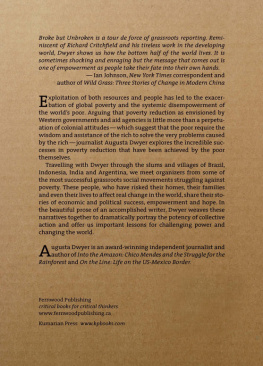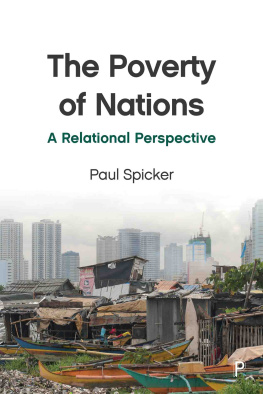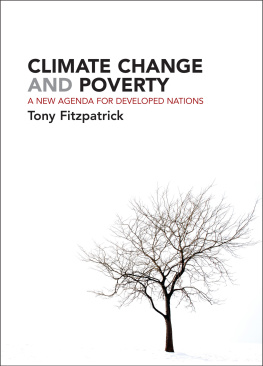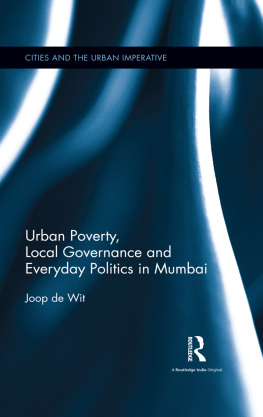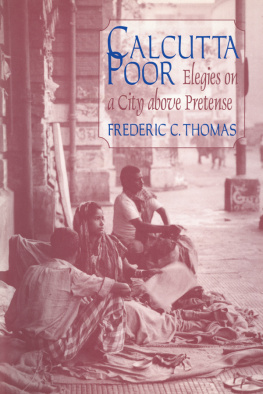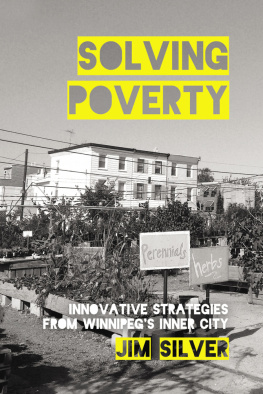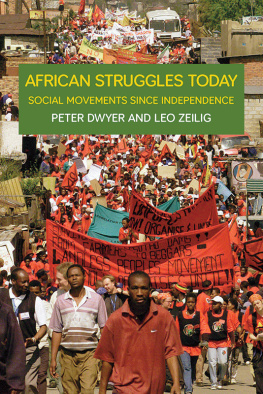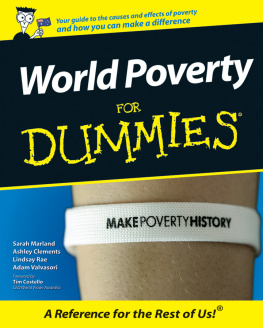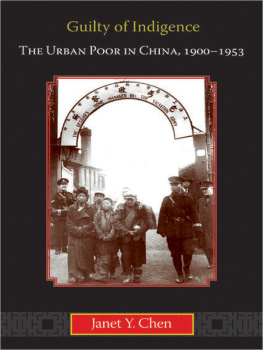
broke but
unbroken

Grassroots Social Movements
and Their Radical Solutions
to Poverty
augusta dwyer
Fernwood Publishing Halifax & Winnipeg
Kumarian Press Sterling, VA
Copyright 2011 Augusta Dwyer
All rights reserved. No part of this book may be reproduced or transmitted in any form by any means without permission in writing from the publisher, except by a reviewer, who may quote brief passages in a review.
Editing and design: Brenda Conroy
Cover design: John van der Woude
Printed and bound in Canada by Hignell Book Printing
Published in Canada by Fernwood Publishing
32 Oceanvista Lane, Black Point, Nova Scotia, B0J 1B0
and 748 Broadway Avenue, Winnipeg, MB R3G 0X3 www.fernwoodpublishing.ca
and in the United States by Kumarian Press
22883 Quicksilver Drive, Sterling, VA 20166-2012 www.kpbooks.com
Fernwood Publishing Company Limited gratefully acknowledges the financial support of the Government of Canada through the Canada Book Fund, the Canada Council for the Arts, the Nova Scotia Department of Tourism and Culture, the Manitoba Department of Culture, Heritage and Tourism under the Manitoba Publishers Marketing Assistance Program and the Province of Manitoba, through the Book Publishing Tax Credit, for our publishing program.




Library and Archives Canada Cataloguing in Publication
Dwyer, Augusta
Broke but unbroken: grassroots social movements and their radical solutions to poverty / Augusta Dwyer.
Includes bibliographical references and index.
ISBN 978-1-55266-406-3
1. Social movements. 2. PoorPolitical activity. 3. Economic assistance, Domestic. I. Title.
HM881.D99 2011 362.57 C2010-908030-0
_________
Library of Congress Cataloging-in-Publication Data
Dwyer, Augusta, 1956-
Broke but unbroken : grassroots social movements and their radical solutions to poverty / Augusta Dwyer.
p. cm.
Includes bibliographical references and index.
ISBN 978-1-56549-447-3 (pbk. : alk. paper) -- ISBN 978-1-56549-448-0
(library ebook) -- ISBN 978-1-56549-449-7 (consumer ebook)
1. Social movements--Developing countries. 2. Voluntarism--Developing
countries. I. Title.
HM881.D994 2011 303.48'4091724--dc22 2011008712
Contents
Part 1 Brazil
Part 2 Indonesia
Part 3 India
Part 4 Argentina
Introduction
Dealing with Hope
It is not through resignation but resistance in the face of injustice that we affirm ourselves as human beings. Paulo Freire
N ear the corner where First Road meets a traffic circle called Alankar Chowk, a group of cart pullers wait for work, playing cards or resting from the effort of hauling heavy loads throughout the city of Mumbai. Below a small shrine tiled with the image of a kindly white-bearded man in an orange robe, their narrow wooden handcarts are parked side by side like skiffs in a harbour. The chowk which in Hindi means a place where paths intersect is hemmed in by rundown apartment buildings, dilapidated little shops and small businesses like the one that announces, unabashedly, Portfolio Management. The chowk swells and blares with a seemingly constant flow of traffic, of taxis, trucks and cars. From sidewalk booths, ribbons of lottery tickets and multicoloured packets of tobacco waft in the fumes of all those combustion engines engulfing the hot afternoon breeze.
Pedestrians, bicycles and men pulling handcarts loaded with odd yet practical items worn-out air conditioners, huge piles of burlap, a dozen rolls of metal sheeting make their way through the traffic. Along the mostly broken sidewalk, the fruit vendors burn sticks of incense among their wares and women string loops of marigold and jasmine to sell to the crowds of passers-by. Men and women alike load sacks and boxes onto their heads or curl up in the shade of a wall, somehow managing to find the oblivion of sleep within this vast grid of commercial activity.
This snapshot of a chaotic, busy intersection where the poor come to work, to sell or to beg is real, and replicated in underdeveloped countries around the world. Yet it is also emblematic of the way many people, including policymakers, the media and even philanthropists, tend to see the poor and poverty: as a problem so vast and so complicated that the poor themselves could not possibly have any solutions to bring to it. They are victims, not protagonists, lacking the time, the tools and the desire to think about the politics of their situation. For many, the slum dweller and the impoverished peasant farmer are not like the rest of us somehow. Even in wealthy nations, the poor are seen as risk-averse, as incapable of long-term planning, as individuals scrambling to make ends meet on their own without any real sense of collectivism or political agency. Thus, poverty is to be survived by the poor, and solved by those who are not.
However, Alankar Chowk is also a place where paths of perception intersect. Cities, especially but by no means exclusively those in the developing world, writes South African political scientist Mark Swilling, are now locales of hopelessness and hope: hopelessness due to the sheer magnitude of the challenges we face, and hope due to the efforts of countless social movements that are finding ingenious solutions to intractable problems in the complex interstices of these awesome, unsustainable social structures. This book deals with the hope. In fact, it goes beyond hope to look at the actual achievements of four grassroots social movements of the poor. It shows how, in their quest for rights and resources, they are proving to be far more successful than traditional aid initiatives, progressively minded governments or piecemeal economic growth in ameliorating the conditions of poverty. Among these organizations is the Indian Alliance, which has an office on First Road. Originally formed in 1976 as the Bombay Slum Dwellers Federation, the Alliance today unites some two million slum and pavement dwellers. Their struggle for housing and tenure rights is just one example of how, increasingly, poor people are recognizing that they do not have to accept the bondage of poverty. Their achievements in changing not only the circumstances to which fate seems to have destined them to live their lives, but also traditional perceptions of them as helpless recipients of aid, are bringing an entirely new focus to the poverty debate.
Over the past several decades, particular global tendencies have exacerbated the growth of Third World poverty. These are the seemingly bland and anodyne features that by now constitute the reigning capitalist orthodoxy. Its features include the exploitation of resources for the benefit of large, international corporations, the constant search for new trade niches and ever-cheaper labour, and the blatant promotion of agribusiness and its addiction to chemicals. Throw in the fiscal policies imposed by global bodies such as the International Monetary Fund and the World Trade Organization on debtor nations, and you have a continuous assault on the lives of poor and indigenous peoples, a big, relentless and efficient system for poverty growth. As Swilling sums it up, the power of those who control the worlds resources depends on the systemic disempowerment of the global poor.
Next page
